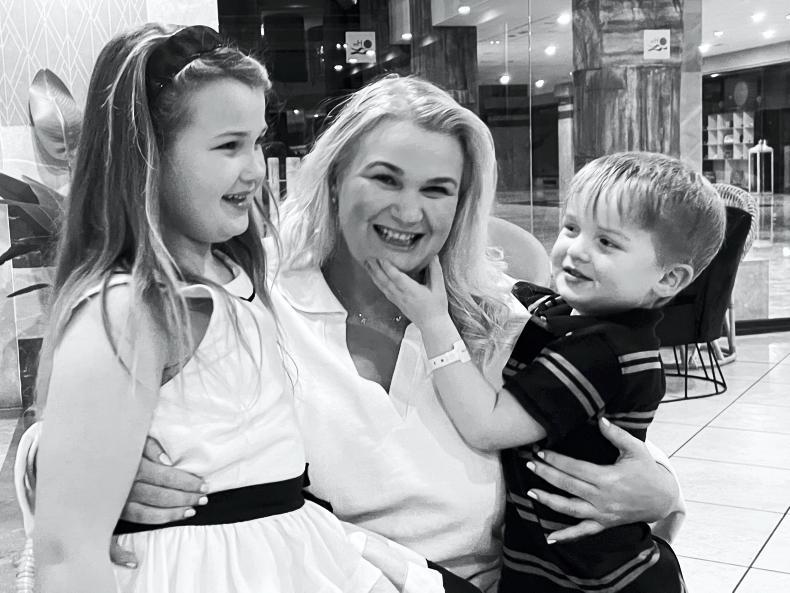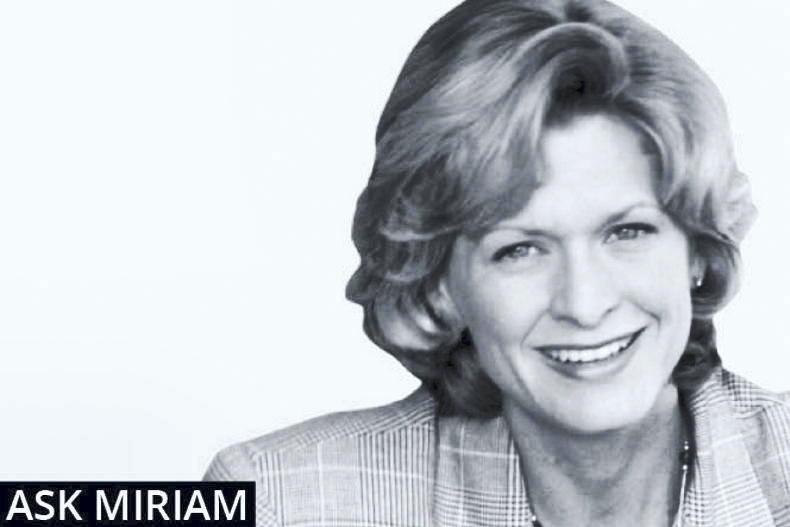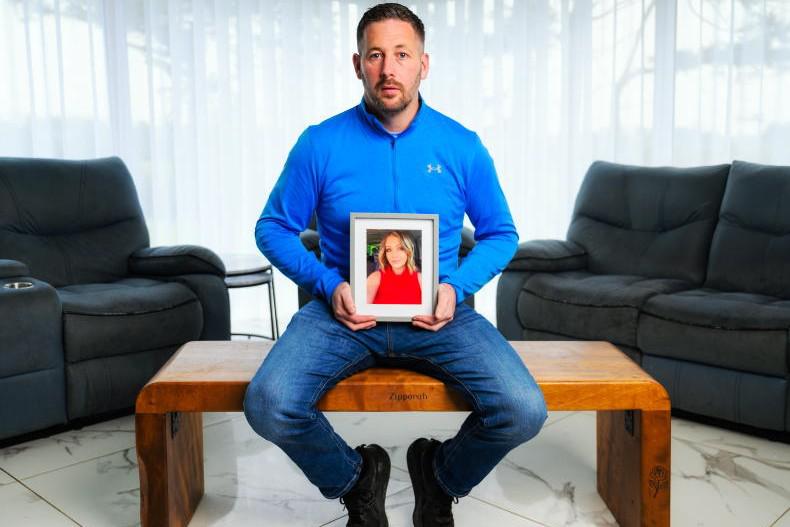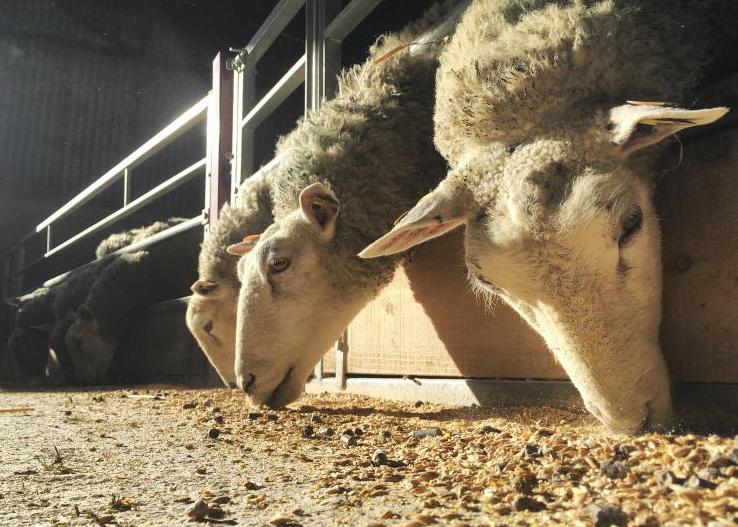Parents who have suffered the loss of a baby are being encouraged to share their experience of care in the first ever national maternity bereavement experience care survey.
Launched on 1 September at www.yourexperience.ie and running until 31 October, the survey will be open to women over 16 who experienced a second trimester miscarriage (after 14 weeks), a stillbirth or an early neonatal death (within the first week of life) between 1 January 2019 and 31 December 2021.
The responses will then be analysed and a report released in spring 2023 identifying any areas that require quality improvements in care.
Anna Maria Verling is the project lead on the survey, which is being conducted by the National Care Experience Programme; a partnership between the Health Service Executive (HSE), the Department of Health and the Health Information and Quality Authority (HIQA).
She has worked as a clinical midwife specialist in bereavement and loss for over 15 years, and has seen first-hand the importance that good care can make at the most difficult time of parents’ lives.
“I’d be very passionate about the care that couples receive and that families receive, the impact that good care can have in terms of their grief and grieving process and I suppose in terms of picking up the pieces of their lives after their loss,” she says.
“Having been on the journey with parents, getting the chance to get their feedback and their experience I’ve always felt is really important and I would have always asked families when they would have come back for any appointments, ‘Look, is there anything we could have done differently? Is there anything you want to tell us?’ I think that feedback is so important in terms of shaping care.”
Need identified
Anna Maria explains that the need for a maternity bereavement survey was identified by the focus group participants who helped to develop the previous national maternity experience survey in 2020.
This new survey has been drawn up within a strict quality assurance framework and with the valuable input of bereaved parents, as well as other stakeholders such as health care providers, advocacy groups, researchers and policy makers.
The result is a set of 99 questions, which should take participants approximately 30 minutes to complete. These cover different aspects of the care pathways in a hospital setting, such as admission, communication, labour and birth, the experience of meeting their baby, neonatal care, postmortem, bereavement care, discharge and follow-up.
“So we’re asking things like where was your care provided? Did you have a single or shared room,” lists Anna Maria as examples.
“We ask people if they felt included or involved? If they felt respected? If the care was compassionate? If they got opportunities to meet their baby and if they were supported and prepared for all of that? Things like what members of the team they met, whether they found that helpful, whether they found making memories helpful?
“We’re just trying to ensure that there was a respectful and dignified experience with compassion and care.”
There will also be a section for partners to fill out and “free text questions” where participants can include any extra information they feel relevant. The survey is independent and completely confidential, with details of support organisations also included.
Shaping future care
With approximately 1,000 women experiencing second-trimester loss, stillbirth or neonatal death each year in Ireland, Anna Maria expects that up to 3,000 people who experienced loss from 2019 to the end of 2021 will be eligible to fill out the survey. (First trimester loss is not included in this particular survey as the care pathway can often be outside a hospital setting.)
She would encourage as many people as possible to take part as their feedback will “help shape future bereavement care”.
“This is the first survey that’s ever been done like this and it’s the first time that parents’ voices can influence and change care. We know some people will have had good experiences and we want to know about those, and we know some people will have had ones that weren’t so good, so we definitely want to know about those too,” she says.
“It’s really learning from the voice of parents because, ultimately, parents who have been through bereavement are experts in their care and their needs because of their lived experience.”
For further information or to take part in the survey, visit www.yourexperience.ie
‘You’re keeping their memories alive through improving the services.’
Diane Magee lives in Tower, Co Cork, with her husband David, daughter Maisy (eight) and son Freddy (four). She has contributed to the development of the survey based on her own experience of baby loss.
In 2015, her son Christopher was born at 32 weeks and lived just over an hour. A postmortem later revealed that Christopher had a fatal fetal condition known as Trisomy 13/Patau Syndrome, but as Diane had not received an anomaly scan at 20 weeks, this had not been picked up.
“It was only weeks off in my own head having a healthy baby, but it all just went so wrong, very fast,” she explains.
Sadly, further tragedy followed. In 2016, she and David suffered a miscarriage at eight weeks, while in 2017, after embarking on IVF, they lost one of their twins in the first trimester. Diane was attending her local midwife at 16 weeks when alarm bells rang as they couldn’t pick up a heartbeat. At the hospital, a heartbeat was detected, but scans revealed a growth issue.
Diane attended hospital every 10 days for the next seven weeks, but, sadly, at 23 weeks, she learned that her little girl, Andie Moya, had passed away. A postmortem later revealed that Andie Moya had Trisomy 18/Edwards’ Syndrome.
Despite such extraordinarily cruel losses, however, Diane has “nothing but praise” for the pregnancy loss services at Cork University Maternity Hospital.
“The care they provided was extraordinary during the most difficult period of my life and my husband’s life, and it continued on throughout all the losses that we had,” she says.
That said, from talking with other parents, she knows of many instances where things “could have been done better” and believes that it’s important that these are recorded in the upcoming survey. As part of the focus group, Diane conveyed the importance of the babies’ names and the participants’ feelings being acknowledged at all times to ensure the survey would not be sterile or impersonal. She would encourage all parents who are eligible to participate to give their honest feedback.
“There might be something so simple that you might say it’s not worth saying it, but all of these add up and you don’t want it to happen to the next person when they’re going through their experiences,” she says, explaining that, ultimately, for her, it’s about being a voice for her children.
“You’re keeping their memories alive through improving the services.”











SHARING OPTIONS